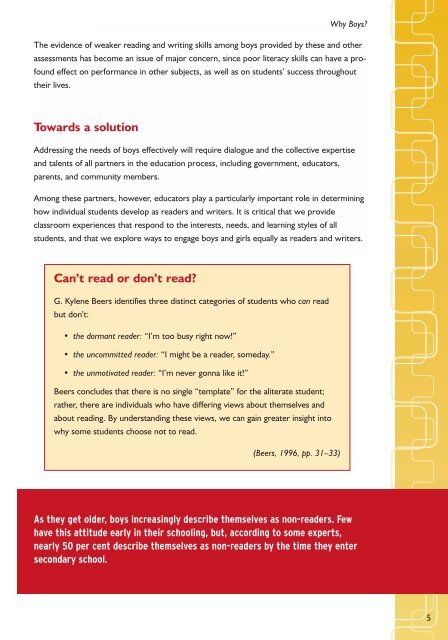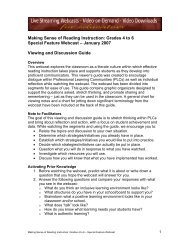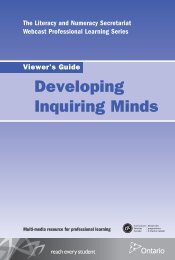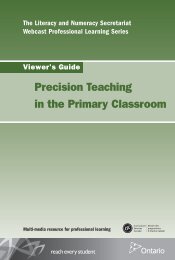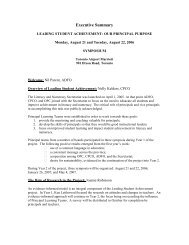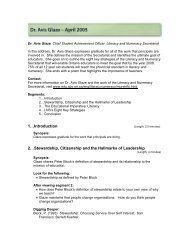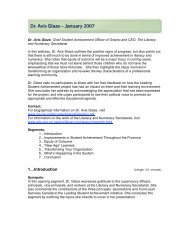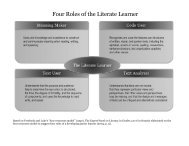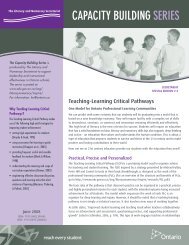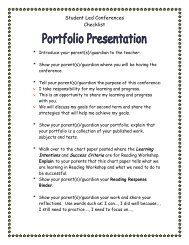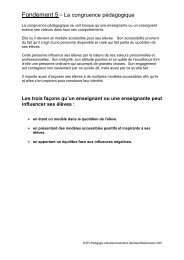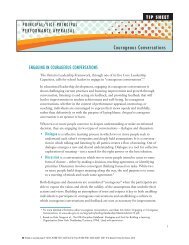Me Read? No, Way! A pratical guide to improving boys' literacy skills
Me Read? No, Way! A pratical guide to improving boys' literacy skills
Me Read? No, Way! A pratical guide to improving boys' literacy skills
- No tags were found...
You also want an ePaper? Increase the reach of your titles
YUMPU automatically turns print PDFs into web optimized ePapers that Google loves.
Why Boys?The evidence of weaker reading and writing <strong>skills</strong> among boys provided by these and otherassessments has become an issue of major concern, since poor <strong>literacy</strong> <strong>skills</strong> can have a profoundeffect on performance in other subjects, as well as on students’ success throughouttheir lives.Towards a solutionAddressing the needs of boys effectively will require dialogue and the collective expertiseand talents of all partners in the education process, including government, educa<strong>to</strong>rs,parents, and community members.Among these partners, however, educa<strong>to</strong>rs play a particularly important role in determininghow individual students develop as readers and writers. It is critical that we provideclassroom experiences that respond <strong>to</strong> the interests, needs, and learning styles of allstudents, and that we explore ways <strong>to</strong> engage boys and girls equally as readers and writers.Can’t read or don’t read?G. Kylene Beers identifies three distinct categories of students who can readbut don’t:• the dormant reader: “I’m <strong>to</strong>o busy right now!”• the uncommitted reader: “I might be a reader, someday.”• the unmotivated reader: “I’m never gonna like it!”Beers concludes that there is no single “template” for the aliterate student;rather, there are individuals who have differing views about themselves andabout reading. By understanding these views, we can gain greater insight in<strong>to</strong>why some students choose not <strong>to</strong> read.(Beers, 1996, pp. 31–33)As they get older, boys increasingly describe themselves as non-readers. Fewhave this attitude early in their schooling, but, according <strong>to</strong> some experts,nearly 50 per cent describe themselves as non-readers by the time they entersecondary school.5


